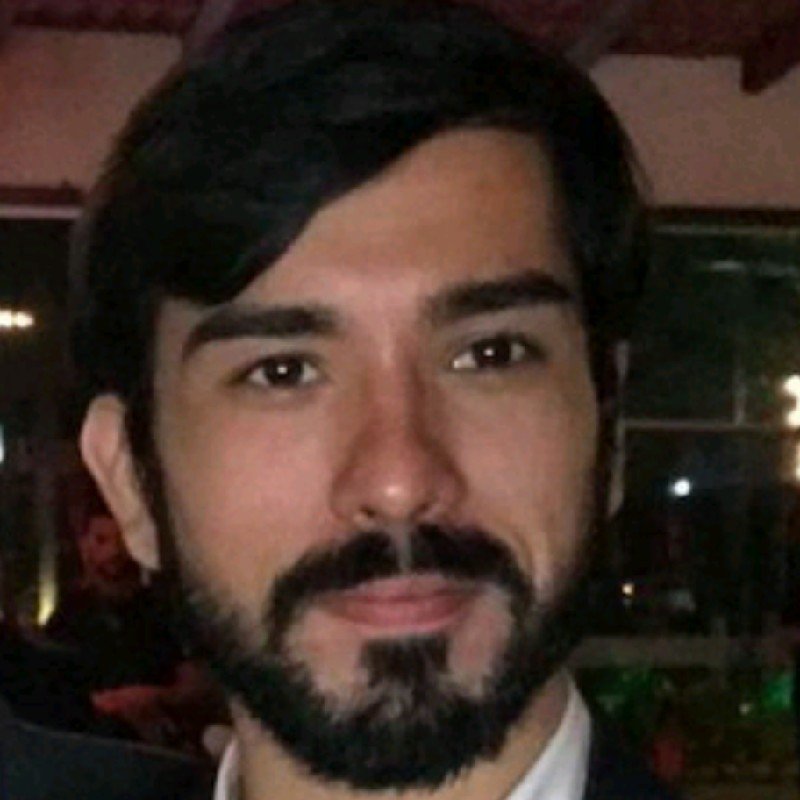The Researcher Diaries
by Dr Felipe Miceli de Farias
Dear Reader,
If you are reading this letter, it’s because you are interested in science like me! Wonderful! Let's start with a small self-introduction. My name is Felipe Miceli de Farias and I come from Rio de Janeiro (Brazil), the marvellous city in the coastal area of my country. I’m a microbiologist to the core and I’m now working as a postdoctoral researcher on the Marie Curie Sklodowska INSPIRE fellowship programme at APC Microbiome Ireland, University College Cork.
Since I was a child, I asked too many questions. Why this? Why that? How does it work? Could I open it to see what is inside, please? Gladly, I have an amazing family that tried to answer all my questions. You know, I think everyone is born a scientist, because to be a scientist is to have this insatiable curiosity, this urgency to understand the world that surrounds us, to rip apart this veil of ignorance that makes us blind. So, I chose at high school to study Food Chemistry at the Federal Institute of Rio de Janeiro and obtained my first scientific degree as a technician. During that time, I discovered the discipline of my life: microbiology! It was love at first sight! Since then, I was fascinated by different topics in this area. My microbiology teacher told me about a bachelor course in Microbiology and Immunology at the Federal University of Rio de Janeiro. I then trained for three years in the laboratory of Prof. Maria do Carmo de Freire Bastos, where I was introduced to bacteriocins which became the main topic of my research! I will forever be grateful for that opportunity. In a simple word, bacteriocins are antimicrobial peptides with capacity to inhibit other bacteria from the same environment or close related species. These compounds can be applied in many ways, but the most common is as a food preservative - Nisin. You might recognize it somewhere on a dairy product label.
These littles peptides opened my eyes to a universe of possibilities, so I did what I needed to do, I studied bacteriocins in my M.Sc. and PhD in Science, which I finished in 2018 and 2022, respectively. After this, I felt that I needed to improve myself as a bacteriocin researcher, so I applied for a position as research assistant at APC Microbiome Ireland, University College Cork to work with Prof. Paul Ross and Prof. Colin Hill, two of the most prominent and relevant figures in this field of knowledge. It was my first experience abroad, where I needed to speak English all the time. To be fair, the hardest part is to be far away from family and friends, but step by step, I learned to take care of myself. To work in this group was everything I could ask for and more! After some months in Cork, I applied for the MSCA INSPIRE fellowship and... I got it!
Currently, the main goal of my research is to discover new bacteriocins which have potential to fight against significant pathogens with potential for development as a new class of antimicrobials and hopefully to replace traditional antibiotics in the near future. The COVID-19 pandemic has shown us how susceptible and exposed humanity is to infectious agents of different origins, where natural selection and mutations continually give rise to new pathogens for which we have few or no therapeutic solutions. Antimicrobial resistance (AMR) is an ongoing global public health crisis. Indeed, annually, approximately 750,000 people die each year due to drug-resistance globally. It has been predicted that AMR will kill 10 million people/year by 2050. We need to something about it! In this sense bacteriocins appear to hold a great potential to be used as narrow spectrum antimicrobial agents. It is speculated that up to 99% of all prokaryotes (bacteria and archaea) have the potential to produce at least one bacteriocin. This vast array of naturally available bacteriocins makes them ideal candidates for the development of new antimicrobial therapies by exploiting this ecological tool. Because of this, I will try to find new bacteriocin producers in different sources: soil, food, water, plant, faecal sample, amongst others. Despite such amazing potentials, few bacteriocins have progressed beyond in vitro validation in the laboratory to medical applications for human or animal use. More research needs to be done to find novel bacteriocins that can inhibit antibiotic-resistant strains, in particular priority pathogens identified by the Centres of Disease Control (CDC) and World Health Organization (WHO), so that soon they can become new tools to combat antimicrobial resistance.
After four months of my postdoctoral fellowship, I already found really promising strains, but a lot of work still needs to be done before any major conclusion. Who knows what is in store for me? Maybe I will find a bacteriocin to treat infection or antimicrobial resistance bacteria and save millions of lives! The only thing that I know is to keep moving forward and do my best.
Thanks for reading this long chapter of my scientific diary! I hope this text helps you to understand a little bit more about the scientific world and about the researchers working in it.
Good luck at your own journey.
Felipe Miceli de Farias
Dr Felipe Miceli de Farias
Dr Felipe Miceli de Farias is a Brazilian postdoctoral researcher in the Prof. R. Paul Ross group at the APC Microbiome Ireland. He recently obtained the INSPIRE Fellowship to screening and characterize new bacteriocins producers with antimicrobial activity against antimicrobial resistance bacteria to use them as future alternatives for antibiotics. He studied Microbiology and Immunology at the Federal University of Rio de Janeiro, Brazil, and received his MSc and PhD in Science (Microbiology) at the same university. His PhD aimed to characterize the conformation of the bacteriocin Pep5, evaluate its biotechnological characteristics, as well as its antimicrobial potential against skin isolates of Staphylococcus spp. He possesses knowledge in structural biology, purification, genome analysis and inhibitory activity for bacteriocin studies. Presently, the focus of his research is characterization and application of bacteriocins against significant pathogens.
You can follow Felipe and his group on Twitter: @INSPIREMSCA @pharmabiotic
And on Instagram: @micelifmf


